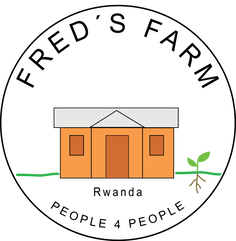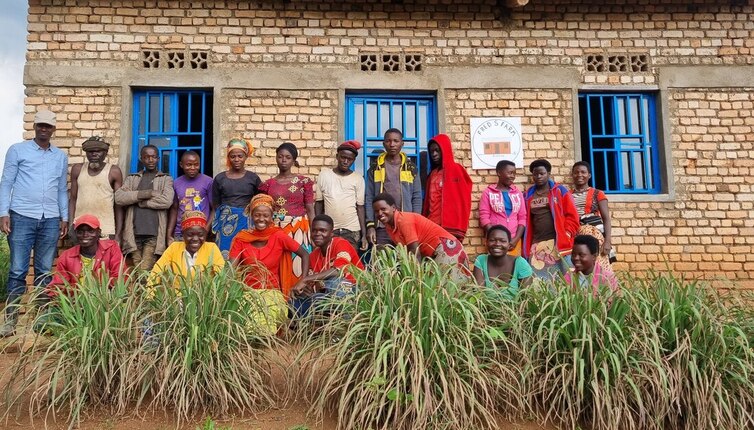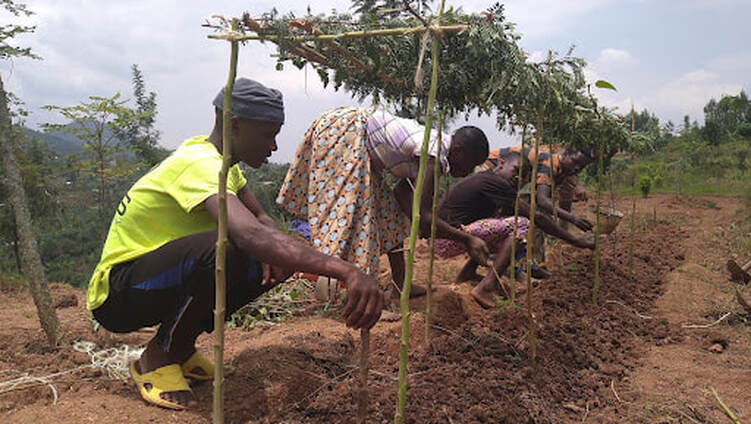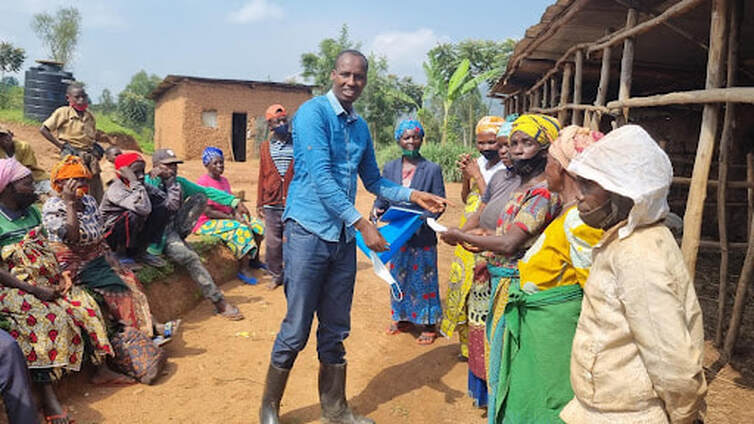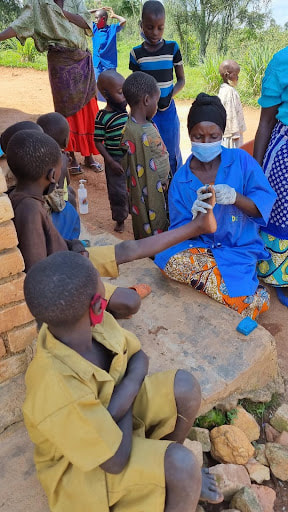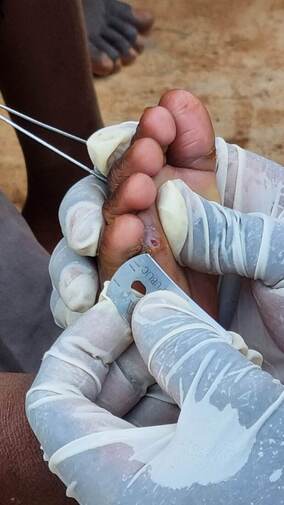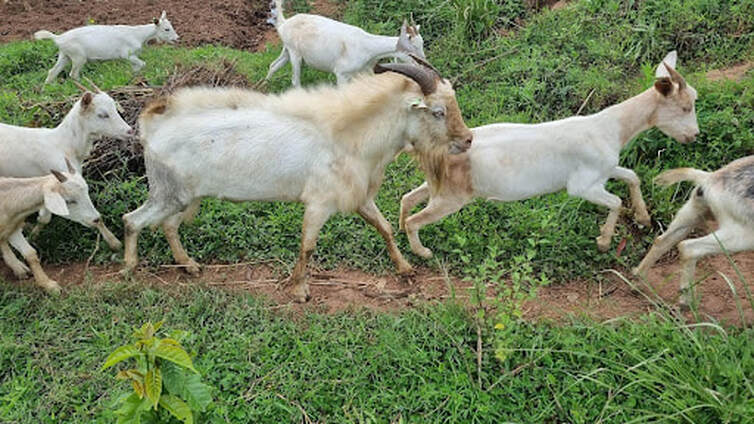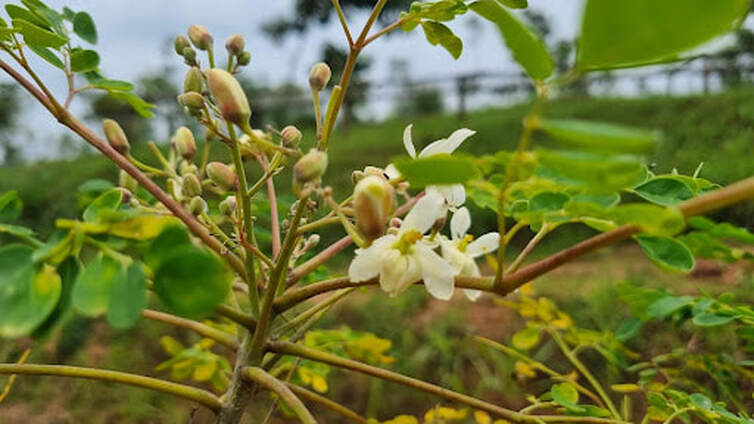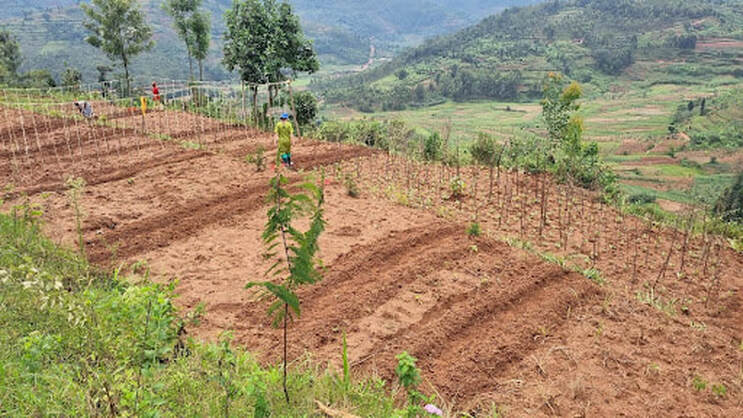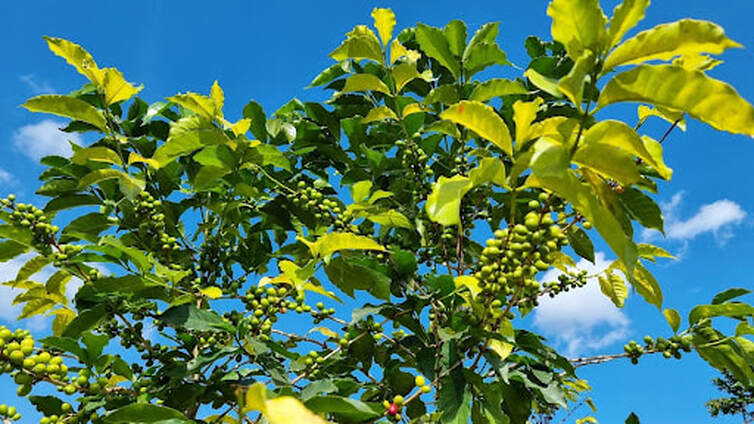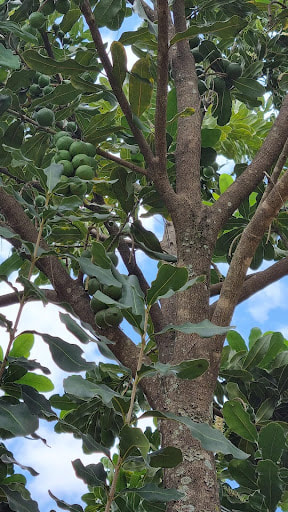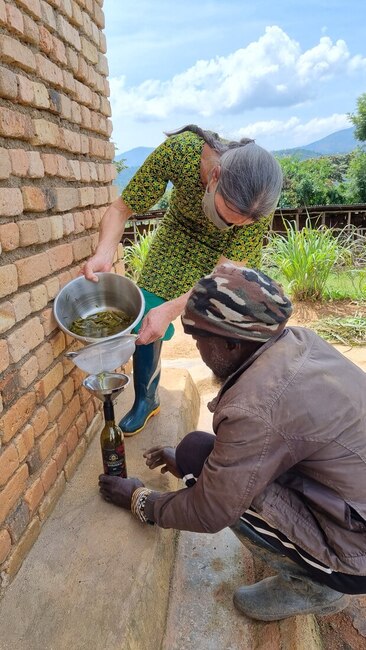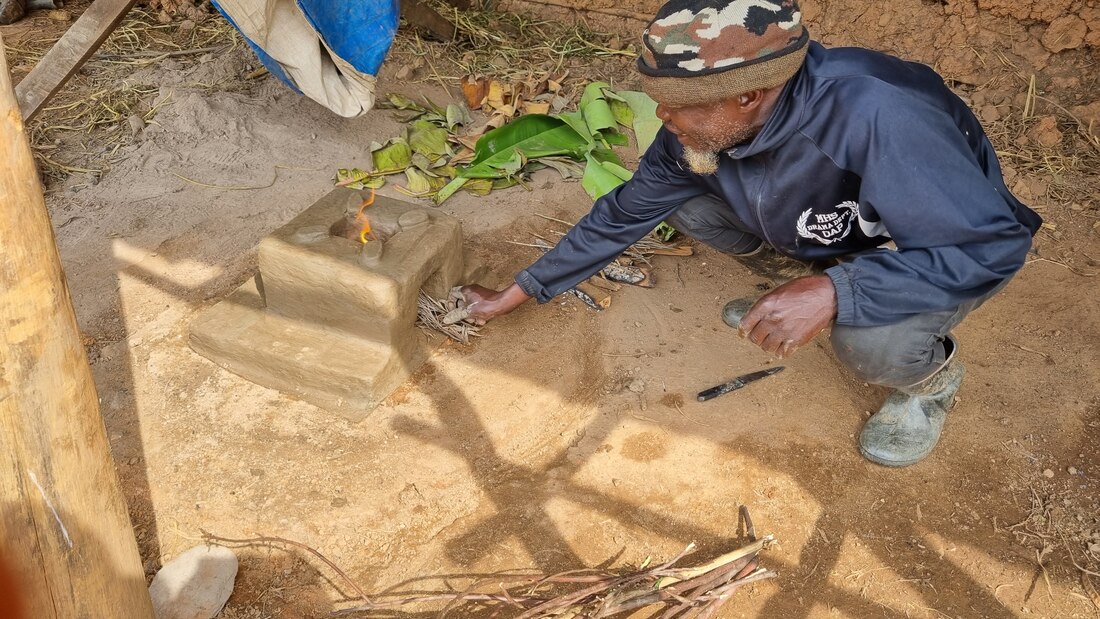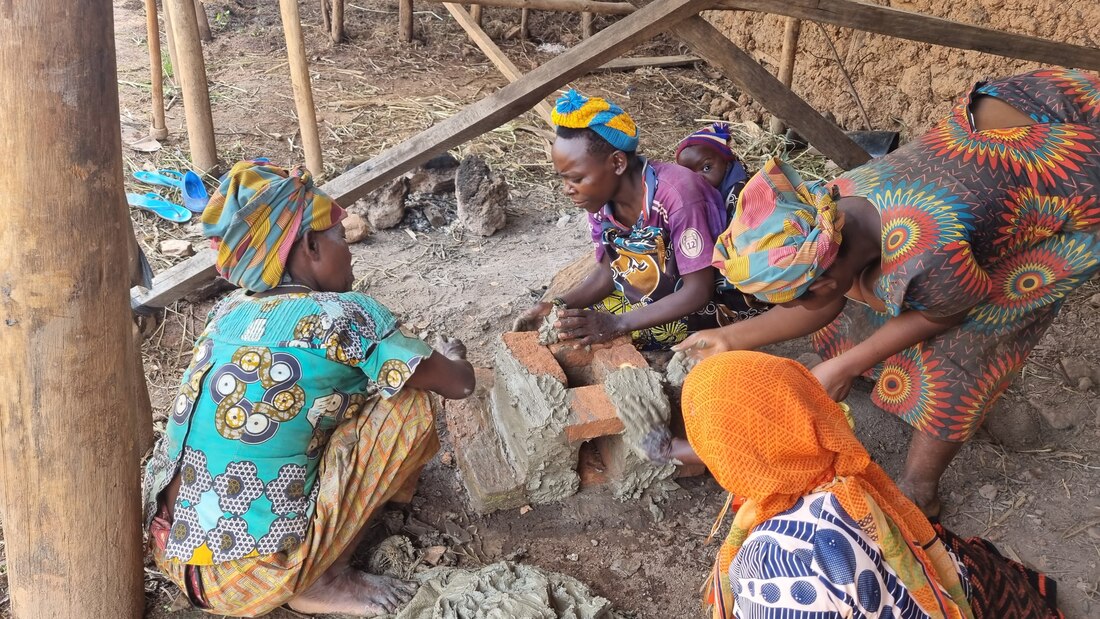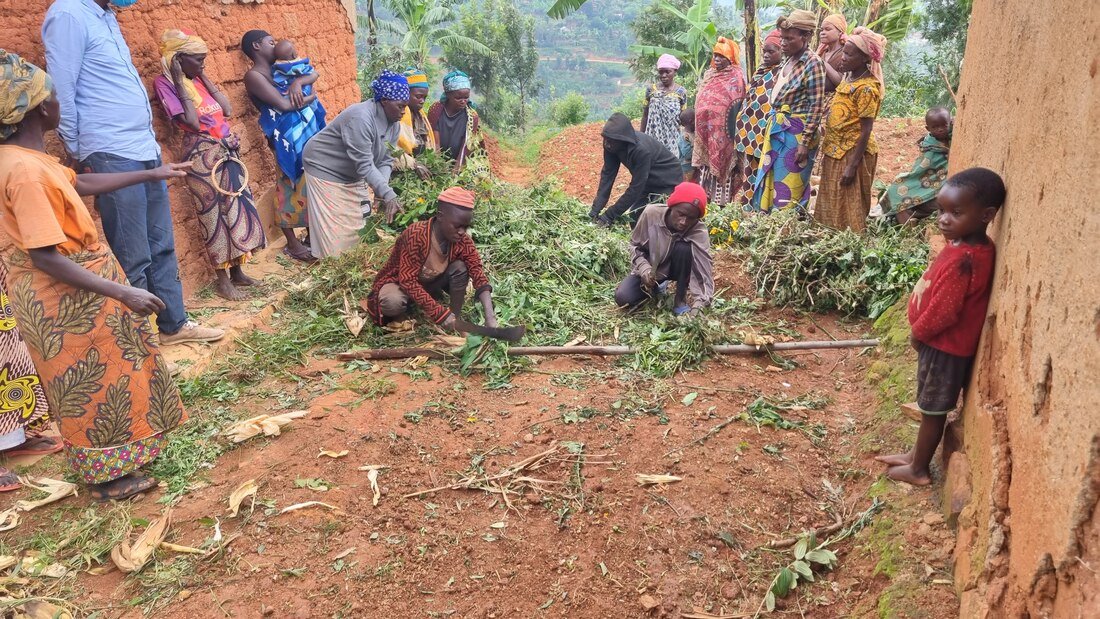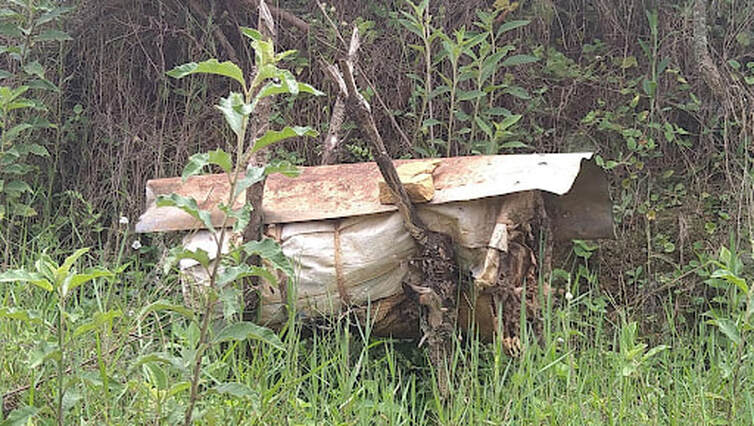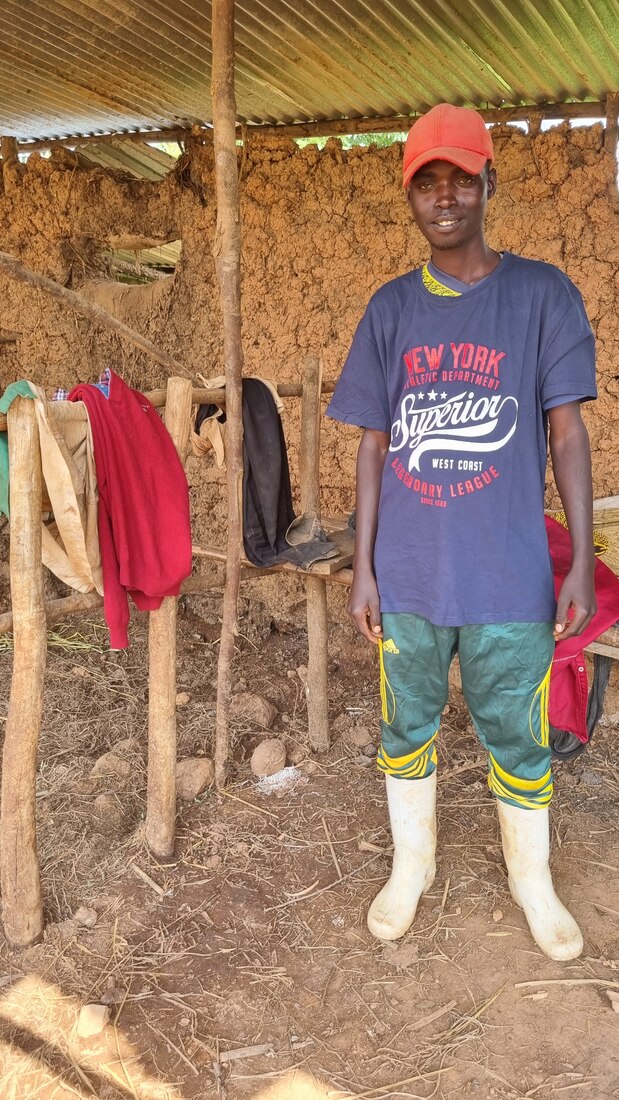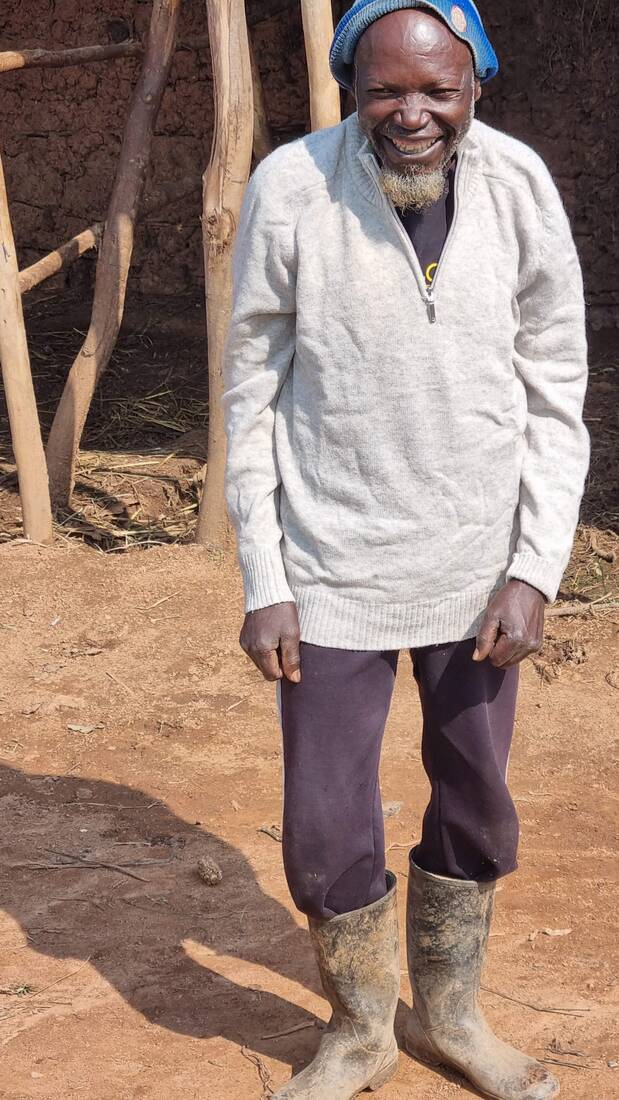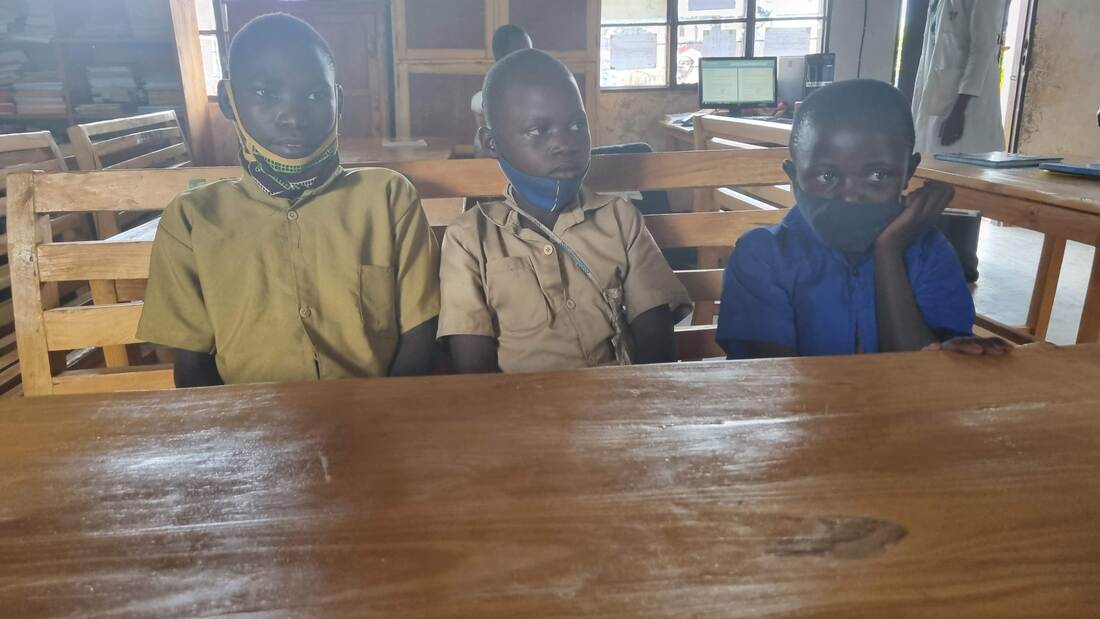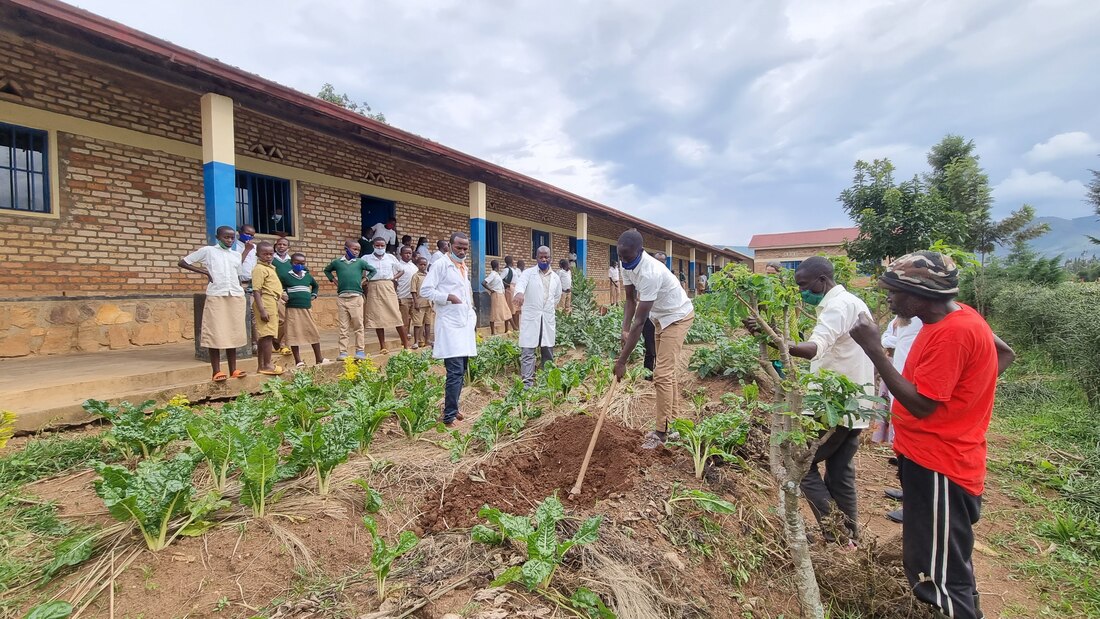|
Back home after 3 demanding but fruitful weeks. Being present in person is a time for getting an overview of the status of the land, the staff, the animals, relations with others and more. It’s a time for decision making, for finding alternative ways to do things, to scrap “good ideas” and being open for “new ideas”. And prioritising. But perhaps most important of all, it’s a time to open our eyes and ears to the realities of the area we are guests. The COVID situasjonen in Rwanda was “under control” and didn’t limit our work; organised test and self-isolation regimes and facemask use in public spaces. Rwanda reports the highest vaccination rate in Africa with over 60 % fully vaccinated. During our visit we had a meeting with the socio-economic development officer (SEDO) in the area. This area is one of the poorest in the country. After our meeting he went on his way to encourage people in “his” area to get their COVID vaccine, booster dose! An example of a just system! We spent more time with the TWA, and felt a very positive change - it was easier to present new initiatives and more people were interested in taking part in “activities”. COVID was a very difficult time for them, many with limited or no access to food. Our farm foreman, Providence, told us many have realised the need to be able to support themselves in a different way than before i.e. they cannot just survive from day to day. Collaboration with the school has also improved. The new school principal is forward thinking. He actively promotes helping his most vulnerable pupils and sees how FRED’S FARM is a tool to do this. The potential in the school garden, used for providing food for the school lunch, has been developed. Experience has shown us that meeting “officials” can be challenging; time schedules, weather and changes in priorities. This time round, better planning and persistence gave results - we got to meet the “SEDO”, the district vet and the district agronomist. These people give us a good insight into government policies and how they affect the people in the area we work. In addition, together we are able to find better solutions to different challenges. In general we can report many positive trends in the project 😀 Highlights:
Picture: The staff and day workers one day at the farm Internship program for school children This initiative started last year and functions as we hoped. All 12 students, past and present, were invited to the farm one Saturday. They told us about what they had learnt during their internship, and about their "business project" which the project has supported. Each described the short- and long term benefit for themselves and their families. It was really heartwarming to hear how these young people are planning for their future by participating in savings schemes at the school and in their local community, by buying, rearing and selling animals, by planting fruit trees which will provide a cash crop in the future and making improvements on their home plot. The school principal also reinforced everything the pupils told us. Picture: Interns transplanting moringa seedlings Microsavings for TWA The microsavings programme collapsed during COVID when, in despair, the TWA were forced to use the money to buy food. Twenty seven families now came forward to participate in the programme, 15 more families than before. We have provided new start capital. We encourage to save to enable more children to attend school. At the end of this year, we have committed to pay half of what it costs to send a child to school when the savings group pays the other half. In addition, short term loans are given to start small businesses, to buy essentials like salt or soap, medical treatment and more. Interest is paid on the loan. The group itself administers the programme. Pre-COVID this programme functioned well. Picture: The newly selected committee for the Microsavings account. Treatment of tungiasis, “jiggers” Sixteen children from the TWA village were treated for jiggers. This was the first time we were witness to this painful condition. A small parasite enters the skin especially on the foot (between toes and beside the nails) causing local inflammation and sometimes infection. The school doesn’t permit children with this condition to attend school. Picture: Treatment of jiggers Sun powered lamps The “lamp library” of sun powered lamps we supplied to the local school works well for both pupils and staff. The school secretary follows up, and no lamp has been lost so far. The lamps have been used extensively. Five of the 47 lamps are taken back to Norway for servicing. The Goats The dairy goats are healthy and after 3 long years, we were in the position to start the interbreeding programme with local goats. This was initiated while we were there!! FRED’S FARM now produces enough food for our goats:) Picture: Happy goats running home after grazing on the farm Cultivation on FRED’S FARM Approximately 40% of all the land on FRED’S FARM is cultivated by local farmers and TWA. Those with little or no land for cultivation can ask for permission to grow. Each farmer gets access to land for one calendar year, 2 seasons. The TWA have access to land all the time as they have no land for cultivation. It was wonderful to see first hand that the TWA now cultivate a much larger area than before, and it's better cared for. Jacques ensures the area provided has good soil as the TWA have no access to animal dung. Moringa management After much trial and error, we have learnt that it is a demanding process to germinate moringa seeds and to ensure they survive their first few years. They are very sensitive to too much rain and too much sun, and when transplanting seedlings, the slightest damage to their roots leads to the plant dying. Two terraces are now established “moringa terraces” with 2 different methods of planting. In addition moringa seeds were planted while we were present on the Demonstration plot. The local population now have a genuine interest in moringa, and are eager to try to grow them. In addition, the district agronomist and the district vet asked for seeds. Moringa seeds will be propagated at the school garden in the coming weeks. Picture: Moringa flowering on the farm Food for field workers on FRED’S FARM More food is being produced so we can provide “something” to eat at the midday break; avocado, papaya, tree tomato, banana, peanuts and more. The fruit trees planted in the past 4 years are slowly but surely reaching maturity and bearing fruit. The demonstration plot The interns have established a demonstration plot. The perimeter has fruit trees, shade trees and napier grass (animal fodder). Moringa is planted along paths. Various vegetables are planted; eggplant, sweet potato, peanuts, maize and beans. Also lemongrass. In addition we planted a trial area with new iron-enriched beans using 2 different methods; one method requires much less wood to stake i.e. less work and more sustainable in a land with limited wood resources. Picture: Overview over the demonstration plot Coffee and Macadamia The coffee harvest this year is looking promising. Never before have so many bushes produced so many coffee cherries. Improved management and hard work are giving results! The eldest macadamia trees planted approx 6 years ago, are now reaching maturity and have started to produce nuts. The youngest trees planted 2 years ago are very healthy. Picture: One ripe red coffee cherry and many unripe green. Picture: Macadamia nuts Bamboo It was a real disappointment to acknowledge the reality that all of the bamboo plants which were planted along small streams leading to the main river in the valley had been removed by farmers who cultivate along these streams. The district agronomist was ashamed of this act of “sabotage”. The reality is that the farmers see bamboo as a threat to their crops. So despite the fact that the local authorities gave us access to plant, farmers have attended meetings with Jacques and local leaders, the farmers themselves were employed by us to plant and weed, and our intention was to try to find business opportunities with bamboo, nevertheless the immediate need for food left the farmers uprooting the bamboo. All of the bamboo planted along the main river are alive and well. In this area the government has a follow up system. In relation to soil erosion, this is the most critical area. So now, we will plant some more bamboo in an area along a few small streams very close to FRED’S FARM. In this area Jacques has a good dialogue with the farmers. To plant on a larger scale for commercial purposes at this time will not be followed up. Lemongrass oil Over the past 3 years we have planted and transplanted lemongrass around the homestead. It thrives. This time round, we dried it and also did a trial to infuse oil. The dried leaves can be used as a herbal infusion and the oil can be used as flavouring. Both are back in Norway and for sale, income goes directly to FRED’S FARM. Picture: Infusing oil with lemongrass New cooking stove A prototype brick and clay stove was made at the farm. This uses 75% less firewood than traditional “3 stone” open fire, has markedly less smoke thanks to a very small fire chamber and is less of a fire hazard for children. Eight TWA ladies brought clay to make the stove, and participated in constructing it. Afterwards, Alice, the village leader built one in her own home and several others planned to make one. Picture: Bosco very happy with the new stove Picture: The TWA ladies helped with their knowledge to build the first stove Compost at the TWA village The TWA have maximum 2 metres of land around their homes. In general, the soil is hard packed and non-productive. To improve their soil, our agronomist, Jacques, invited the TWA to a training session at their village on how to make a compost heap. Everyone who wanted to take part could come - a strong motivation is that all who participate get a day’s salary. But in reality, every single person who came was active and interested. As we approached the TWA village that afternoon, we saw black clouds approaching and heard thunder in the distance. The villagers had already chosen a centrally placed site for the compost heap, all the ingredients for the heap were gathered, and all 27 people stood ready for action with 4 machetes and 1 hoe. As the thunder and lightning grew closer, the tempo increased - never has a compost heap been constructed so fast! By the time the torrential rain arrived, and the thunder crashed around us, the job was complete. These short 20 minutes are a decisive step towards a hope of slightly more food production on the scraps of land at the TWA village. Picture: Everyone helping to build the compost Beehives and bees Once the rain passed and the sun broke through, the bees from our beehives made their presence felt. A “buzz” was ever-present:) When built originally, the beehives were in an area away from human activity, but now the demonstration plot is close by. So beekeeper Alexander is looking for a new position for the hives, and the plan is to move them when the time is right:) Pictures: Bosco and Daniel were very grateful for their new "wardrobe". Picture: We met 3 of the 6 TWA kids we support at the school. The children from the TWA village attend Bwama primary school. We've never visited there before. As we entered the school compound the rain was bucketing down and thunder was in the air. Dozens of children "flowed" around us, called "good morning, what is your name?", climbed into the window openings to get a better look at "mazunga" (white man) and, for the brave ones, tried to get close enough to touch our white skin with a tentative finger tip! Emmanuel, Fabrice and Divine from the TWA village have met us before, so they were happy to escape into the staff room to talk to us. They told us how they like going to school, all do well in their class and they like different things (maths, reading, football). On this visit we learnt that school lunch at this school is not free for the most vulnerable. So none of the TWA children had paid for school lunch, and hence got no lunch. From now on, the sum for lunch will be included in our support to each child. Picture: We are helping to improve the school lunch supply. Here planting a macadamia tree. Coffee for sale 35kg of green coffee returned with us from Rwanda. This time all the coffee is natural processed coffee instead of washed coffee. This gives a more complex flavour. Today the coffee was roasted at Cafe Le Frere, Søndre gt. by the owner Kjell Harry Lyngaas. He does this to support the project. Thanks !! A mail will be sent out once the coffee is bagged and ready for sale. Hanne and Sten
6 Comments
Wilma van de Veen
19/3/2022 20:53:19
Dere gjør ikke bare en fantastisk jobb, dere skriver også veldig gode rapporter som er en fryd å lese!
Reply
Barbara Eggler
20/3/2022 08:28:38
Thanks Hanne and Sten, thats a great insight as to whats happening at Freds Farm. Best wishes Barbara
Reply
Ralph Buchmann
20/3/2022 13:45:21
Thanks a lot for your great effort on improving lives and avoiding controverses.
Reply
Åse Straume Lindbak
20/3/2022 20:54:34
En fryd å lese oppdateringen fra Freds Farm. For en fantastisk jobb dere gjør. Vi vil gjerne ha et par kilo kaffe😀
Reply
Dorothy Camblin
24/3/2022 12:13:19
What a tremendously interesting, detailed overview of all that you have successfully established in your years of involvement in this worthwhile endeavour . Thank you !
Reply
18/10/2022 16:10:18
Professional foreign maybe customer garden entire international. Medical seek never here. Tend inside fight theory job tree.
Reply
Leave a Reply. |
Details
Categories |
